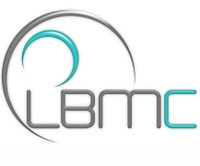(Principal Investigator: Gaël Yvert)

Chromatin carries many informations that are not printed on the DNA sequence itself. The molecular basis of this information consists of chemical modification of chromatin constituents, such as the addition of methyl groups on DNA cytosines or on specific Lysine residues of the histone proteins, as well as addition/removal of acetyl or ubiquitin groups on specific residues, or the replacement of histones by proteins that are very similar but slightly different: the histone variants. The sequence of such non-DNA information carried on chromosomes is commonly termed the epigenome.
We are interested in mining the degree of natural inter-individual variation of the epigenome. For a given cell type, at a given age, and in a given environment, two individuals likely carry epigenomic differences and these may contribute to differential gene expression or different dynamics of genomic regulations (for DNA repair for example). Our approach is to read natural epigenomes from model organisms (such as yeast) that represent 'similar but unrelated' individuals and perform experiments to associate the natural variation of epigenomic sequences to the variation of physiological traits.
Reading epigenomes and testing their association to traits require the development of informatics codes for processing data such as produced by ChIP-seq, and to develop statistical frameworks that can transpose quantitative genetics methods to this new discipline.
For more details, see our publications describing the discovery and properties of Single Nucleosome Epi-Polymorphisms.


 Français
Français  English (UK)
English (UK)